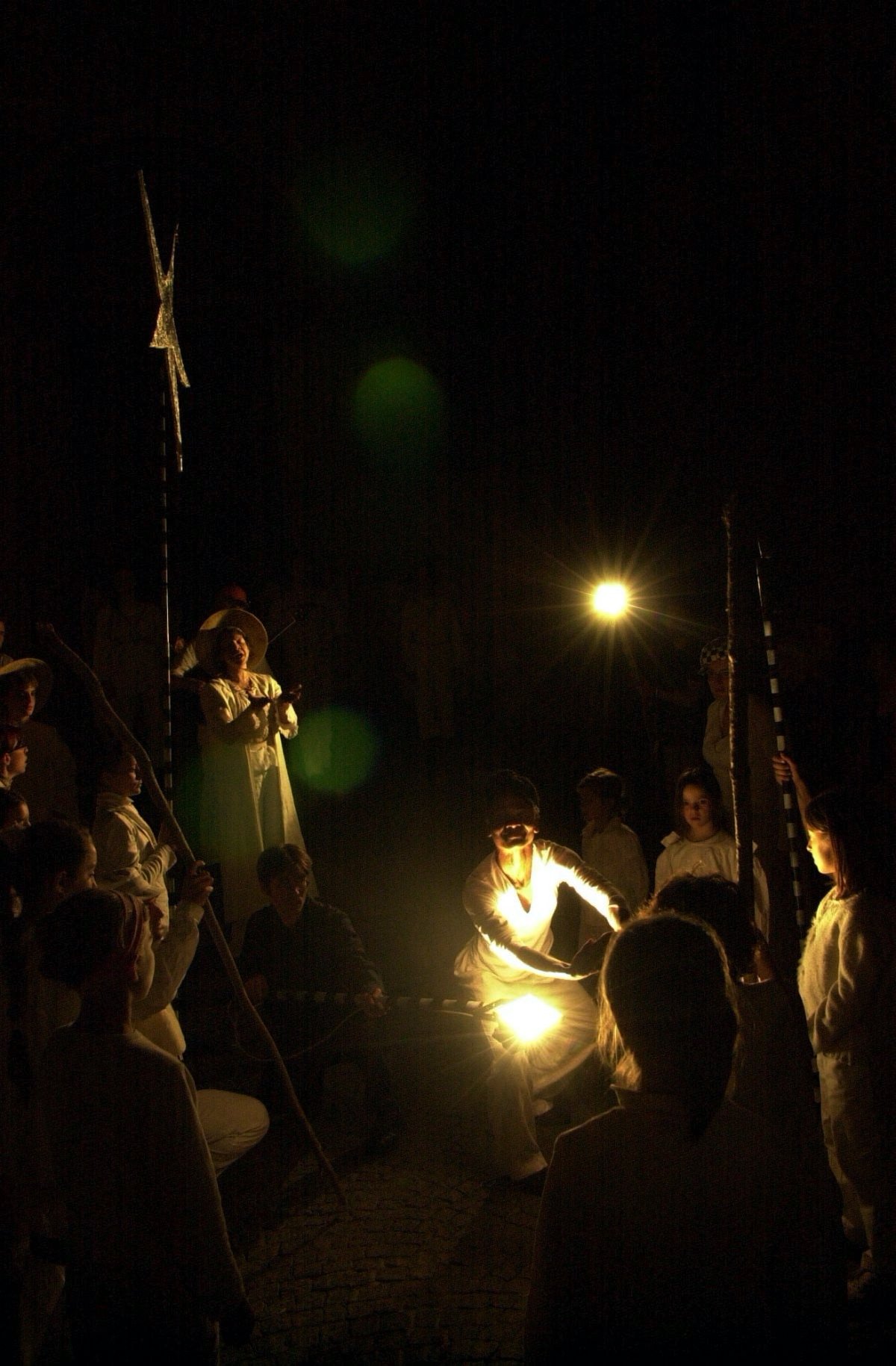Christmas and God's Downward Mobility
Image: A scene from Strangers & Other Angels, a mystery play staged by Compagnia de’ Colombari in Orvieto, Italy. Photo: Massimo Achilli.First seen in an Image journal email.
Like everyone else does, Jesus will start life as a baby.
To be a human is to be vulnerable. To be a baby is to be even more so. But in Jesus God becomes human. Truly vulnerable.
One of Jesus’s names, Emmanuel, means “God with us.”
He promises to come into life itself, for all its grubby spectacular splendors, into all its gritty particulars. Which means God identifies with us in all our humanness and ordinariness.
This is amazing God of downward mobility won’t hide himself behind vague precepts and impersonal laws of nature.
Instead, God descends from the glories of heaven to the wonder and shabbiness of earth. He’ll dive into our messy lives. And that’s wonderful news. For God has more in store for humankind than a birth, than even an incarnation. He will also take on a self-sacrificial life.
The cradle points ultimately to a cross. So we know already that he will walk with us through the hardest thing. Even shed tears. (“Jesus wept,” John’s Gospel tells us.)
And isn’t that what we long for? Not insight delivered from a distance. Not advice. But someone who walks with us, who sits with us in our grief. So that he can share with us in the things that cause us pain. Who understands us and our predicaments?
And so we celebrate not just angels and shepherds and homey stories, but something more profound, more gritty, more like our own human lives with their trials. That is where God has chosen to inhabit, how God has chosen to move into the neighborhood.
We might reverence a God who in power displays his infinite majesty. But for one who figures out how to get through to us, to touch our hearts, cry with us? How much more than reverence would we offer! How can we respond but in love?
